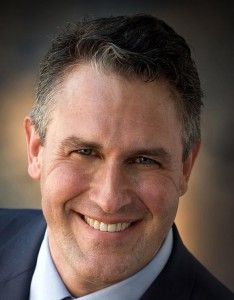Frank Lasee Speaks His Mind
- Share
- Tweet
- Pin
- Share
Frank Lasee (Republican – Bellevue)
Profession: Worked briefly in real estate and for Case New Holland since losing Assembly seat in 2008
Prior Community Service: 2nd Assembly District Representative, 1994 – 2008; Ledgeview Town Board Chairman, 1993 – 1997
For a man who has been among the most controversial politicians in Wisconsin in recent years, Frank Lasee speaks in a surprisingly measured cadence.
The 1st Senate District candidate, and distant cousin of retiring office-holder Alan Lasee (R – DePere), earned headlines and the ire of the education community for his suggestion in 2006 that the state consider arming teachers in response to school violence.
Over breakfast at the Sandpiper restaurant in early September, the 1986 graduate of the University of Wisconsin-Green Bay discussed his controversial past quietly, patiently. He explained that the arming teachers idea was blown way out of proportion.
“That was mischaracterized by the media,” he said. “WEAC [the Wisconsin Education Association Council] was looking for a reason to go after vulnerable republicans, and they used that.”
Lasee said that WEAC poured $400,000 into the campaign to oust him in 2008 from the Assembly seat he had held for 14 years.
“The idea was to have somebody in the school, who was vetted and responsible, who would have a gun, locked up, in case someone was shooting up the school,” Lasee said. “It wasn’t everybody. And it was never even a bill, just a suggestion that got into the media.”
Lasee has never been afraid to rock the boat, even within his own party. He has proposed reducing the number of Wisconsin counties (there are 72) and cutting law school funding for the University of Wisconsin system to save money. In 2004, he and fellow Assemblyman Jeff Wood introduced a Taxpayers Bill of Rights, known as TABOR, that would limit government spending to population growth plus inflation. It would also require voter approval of any increase to income, sales, and property taxes.
The race between Lasee and Democrat Monk Elmer is a study in disparate views of the possibilities of government. Elmer preaches common ground and the need for Democrats and Republicans to mesh ideas in the search for solutions, while Lasee sees the two as solidly split along ideological lines. Republicans are the “party of individual responsibility, where Democrats are the party of the more government, the better. The idea that the government is here to take care of you.”
Lasee said the Democratic Party has taken all the conservative Democrats out of office, moving the party far from the mainstream.
“We’re a center-right nation and a center-right state,” he said. Even so, he considers himself a minority within the Republican party. “I’m in the minority of the majority. There are tax-and-spend-and-borrow Democrats, and there are tax-and-spend-and-borrow-just-a-little-bit-less Republicans.”
The state’s budget problems are simply a matter of over-spending, Lasee said, with a fix rooted in discipline.
“I want to balance the state budget without raising taxes,” he said. “It takes the discipline of not starting any new programs, not expanding existing programs. I would propose we suspend all upcoming mandates, such as Smart Growth and energy mandates.”
Smart Growth has been a tremendous burden to state and local governments, he explained, forcing small towns all over Wisconsin to pay consultants hefty fees to guide them through the comprehensive planning process.
“We are very aggressive in our government in Wisconsin,” he said. “We enhance federal regulations, accelerate them, and make them more expensive than they’re meant to be.”
In an hour-long breakfast, Lasee’s temperature rose on only one topic – education. It’s clear that his election loss two years ago left him with a bitter taste for the teachers’ union, and he wants a new approach to education in this state.
“I don’t have the answer for school funding,” he said. “It’s a difficult problem. But one thing we do is over-compensate and over-benefit our teachers.”
Our schools, he said, are not interested in reform and new approaches. Instead, the answer of the teachers’ union to every problem, he said, “is more money.”
“So we give them $3,000 per student, and they say they need more,” he said. “Then we give them $5,000, and they want more. Then $10,000. Then $15,000, and they still say ‘more.’ How much more does it take?”

